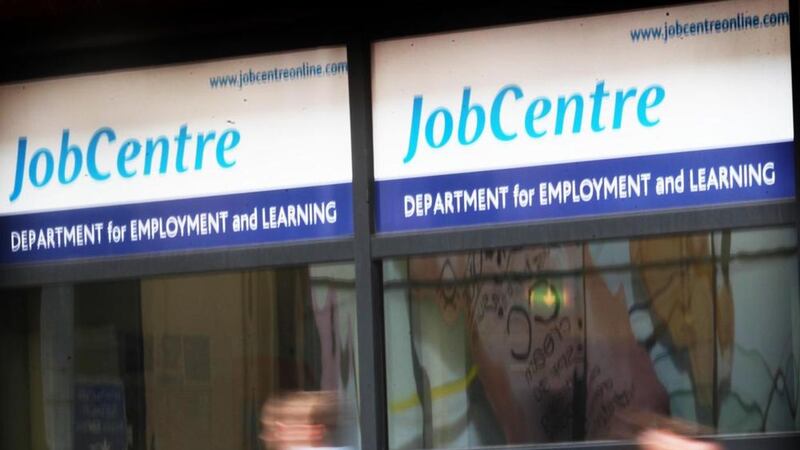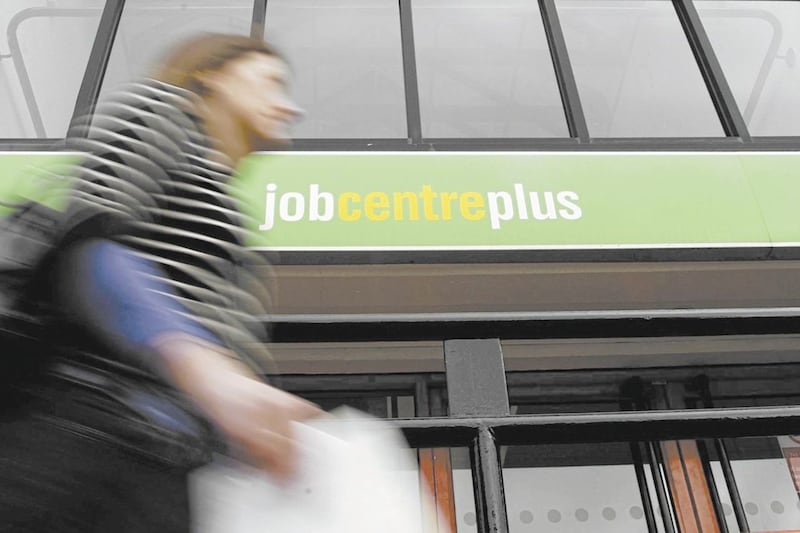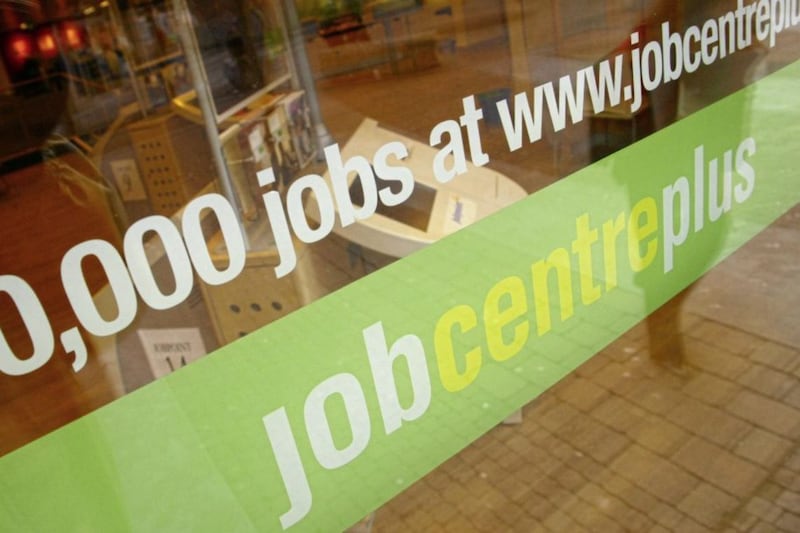NORTHERN Ireland's dole queues shortened by 800 people last month, according to the latest official figures.
There is now 35,100 people claiming unemployment related benefits.
And according to the Northern Ireland Labour Force Survey, the north's unemployment rate over the three months to July was 5.6 per cent - down 0.2 percentage points on the previous quarter and 0.7 percentage points on the same period last year.
However economic inactivity remains stubbornly high at 26.4 per cent - down from 28.1 per cent last year but well ahead of the 21.5 per cent UK average.
Meanwhile, the separately compiled Quarterly Employment Survey showed that the number of employee jobs increased over the quarter by 0.1 per cent (860 jobs).
There were favourable economic figures for the same quarter with output in the services sector increasing 1.7 per cent while the production sector showed a 0.6 per cent increase.
Economy minister Simon Hamilton said he was "greatly encouraged" by the data.
"Creating more and better jobs is a key priority for me. The increase in employee jobs and the increase in the employment rate is hugely encouraging and a further sign that our economy is heading in the right direction," he said.
“It is very welcome to see another decrease in the number of people on the unemployment register. The count now stands at 35,100 people – a decrease of 16 per cent over the year.
"The unemployment rate also continues to head in the right direction, at 5.6 per cent, the lowest it has been since the end of 2009, and comparing very favourably to the European Union average of 8.6 per cent.
“Output in production over the latest quarter has been positive. It is also great to see that our services sector grew at a faster rate than the UK as a whole, both over the quarter and the year, and all sub-sectors benefited from this growth.
“As we move forward with transforming Northern Ireland into a globally competitive economy, I want to capitalise on our strengths and propel our region forward through the executive’s refocused economic strategy.”
Andrew Webb, managing director of Webb Advisory said the jobless figures presented "another round of welcome and positive results in terms of the unemployment rate here".
"Once again the unemployment rate has continued to decline, decreasing by 0.2 percentage points over the quarter bringing it to 5.6% over the year. This is the lowest unemployment rate since November - January 2009," he said.
“The number of people claiming unemployment related benefits (from NI Jobs and Benefits Offices) decreased by 800 over the month (this figure stood at 600 in July 2016) to 35,100 in August 2016. This is the fifth consecutive decrease after two consecutive months where the claimant count had increased. Although, we are still the fifth highest rate out of the UK’s 12 regions.
“However, perhaps most telling is the fact that economic inactivity (ie those who are neither in employment nor unemployed) once again has increased and stands at (26.4 per cent) this rate is considerably higher than in the UK (21.5 per cent). We saw last week that the minister for the economy took steps to address the fact that we don’t export enough through a trade accelerator plan. Perhaps it is time to accelerate implementation of an economic activity and employment strategy.
“We have been quite fixated on Brexit these past three months but the economy appears to continue broadly as was. That said, this is no time for any smugness or complacency. The real impact will begin to be felt when the exit occurs. The type of deal the UK does with the rest of the EU will have a significant impact on business and consumer confidence which may well have a knock on negative impact on employment. Until more is known, we must ensure NI is as strong, competitive and ready to react as it can be. For me, that starts with employability and skills and these inactivity numbers should be causing sleepless nights for policy makers.”








